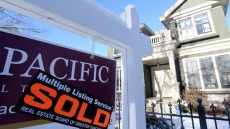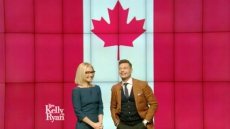Prime Minister Justin Trudeau is set to make global action on climate change and sustainable economic development a main thrust of Canada's upcoming year as president of the G7.
In the aftermath of President Donald Trump's withdrawal from the Paris climate change accord, Trudeau has been reaching out to the rest of the G7 to renew plans to push ahead and develop a green global economy, regardless of the United States.
In the space of five days, Trudeau initiated phone calls with French President Emmanuel Macron, British Prime Minister Theresa May, Japanese Prime Minister Shinzo Abe and German Chancellor Angela Merkel.
Except for the call with May, which focused on the recent attack in London, each conversation was about charting a path forward on climate change, international trade and sustainable development.
Trudeau and Environment Minister Catherine McKenna have both been clear Paris will survive with or without the Americans, and that Canada will "step up" to take advantage of what they call a huge economic opportunity.

Even before Trump's official announcement on Paris, Canada was taking steps to lead on climate change, along with China and the European Union. The three will gather in Canada in September for a ministerial meeting on how to advance Paris and clean economic growth. Canada will also host an intergovernmental panel on climate change in Montreal that same month.
It all leads into 2018, when Canada takes over the presidency of the G7.
A spokeswoman for McKenna did not answer questions about exactly how Canada intends to make climate change a G7 priority in 2018. But a news release earlier this week promised to "prioritize climate-change action and clean economic growth during Canada's G7 presidency."
That declaration came less than a week after G7 leaders couldn't get Trump to agree with the other six about making it a priority this year.





